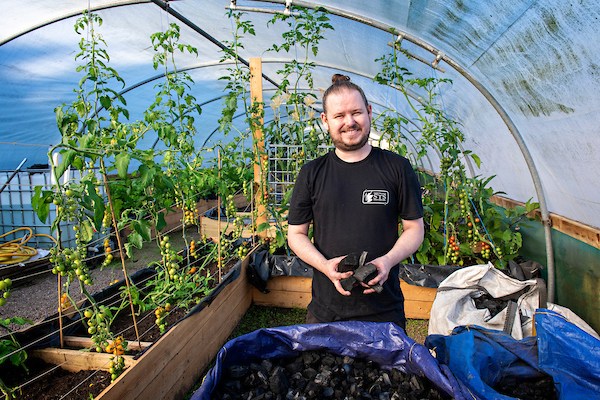Social Investment: What type of social investment do I need?
In this post, we’ll help you understand the most common types of social investment products and outline some of the providers of these products in Scotland.
Welcome to the third instalment of our social investment series. So far, we’ve covered what social investment is and what being ‘investment ready’ means. If you have decided to take the next step, do you know what type of social investment you need? In this post, we’ll help you understand some of the most common types of social investment products and outline some of the providers of these products in Scotland.

The type of social investment you need will depend on your reason to seek investment: is it to kick start your idea, reach scale, or buy an asset? Let’s explore the differences:
Loans
As we mentioned in the first blog post of this series, loans are the most common type of social investment. Typically, you will take out a loan from a social investor that you agree to repay over a set period, often with interest.
Loans can be secured (when the money you borrow is secured against an asset you own, like a building) or unsecured (no security against your organisation’s assets). Sometimes, a loan can help you bridge the gap between the initial spend to deliver a contract and receiving payment for your services. These are bridging loans.
Loan funding can be a great option if you need working capital or to buy an asset to become more sustainable. Many social investors offer loans with competitive interest rates and repayment terms. Social Investment Scotland and Big Issue Invest are good places to start.
Blended finance
In a blended finance package, a social investor offers you funding that includes a loan that you must repay alongside a grant that does not need a repayment.
It is an option if you want to expand your services to increase your social impact, but your activities cannot generate enough profit to repay the full amount you need.
Foundation Scotland offers blended finance options.
Revenue-based repayment
This is a less common type of investment where a social investor offers you a loan, but instead of paying back a set amount each month with a fixed interest rate, your repayments are based on the revenue you generate each month. So, in months where revenue is high, you will pay back more, and in months where trading revenue is low, you will pay less.
Revenue-based financing offers flexibility, so it can be a good option for start-ups with significant set-up costs, or scale-up costs that need time to generate income before paying back a loan.
This year, Firstport launched the Catalyst Fund, the first fund in Scotland to offer a revenue-based finance model.

Community Shares
Community shares are a type of share capital that is suited to the needs of community businesses. They are typically used by community enterprises to help fund all sorts of businesses, including shops, pubs, and community centres.
Community enterprises make a share offer and encourage their local community to invest in the enterprise. Shareholders have the right to withdraw their share capital, but they cannot sell or transfer their shares.
Community Shares can offer a solution for rural-based enterprises looking to set up a business that a local community needs. Using this model, local people engage with the enterprise not only as investors, but also as customers, supporters, and volunteers.
Community shares are only available to organisations set up as Co-operatives and Community Benefit Societies.
Check out the Community Shares Scotland website for more information.
Crowdfunding
Crowdfunding is a way of raising finance by asking a large number of people to each give a small amount of money, usually through an online platform.
There are different types of crowdfunding. Many people donate money because they believe in the cause or claim against a ‘reward’. There is also debt crowdfunding, also known as Peer-to-Peer Lending, and equity crowdfunding, where investors back in an idea in exchange for equity in the business.
Crowdfunding can be a good solution for early-stage ideas and to raise relatively small amounts of money.
There are many crowdfunding platforms available, including some specifically set up for charities and social causes. Well-known ones include Indiegogo and GoFundMe.
As you can see, social investment can take different shapes and sizes. The best product for you will be the one that allows you to achieve your plans. Social investors want to help you understand if and what type of product is best for you, so contacting a social investor before making an application is always a good idea.
Come back for the next instalments in the series when we will chat with some of the investors mentioned in this post!
Sources:
- Good Finance
- Community Shares Scotland
- UK Crowdfunding
- Cooperatives UK – The Community Shares Handbook
